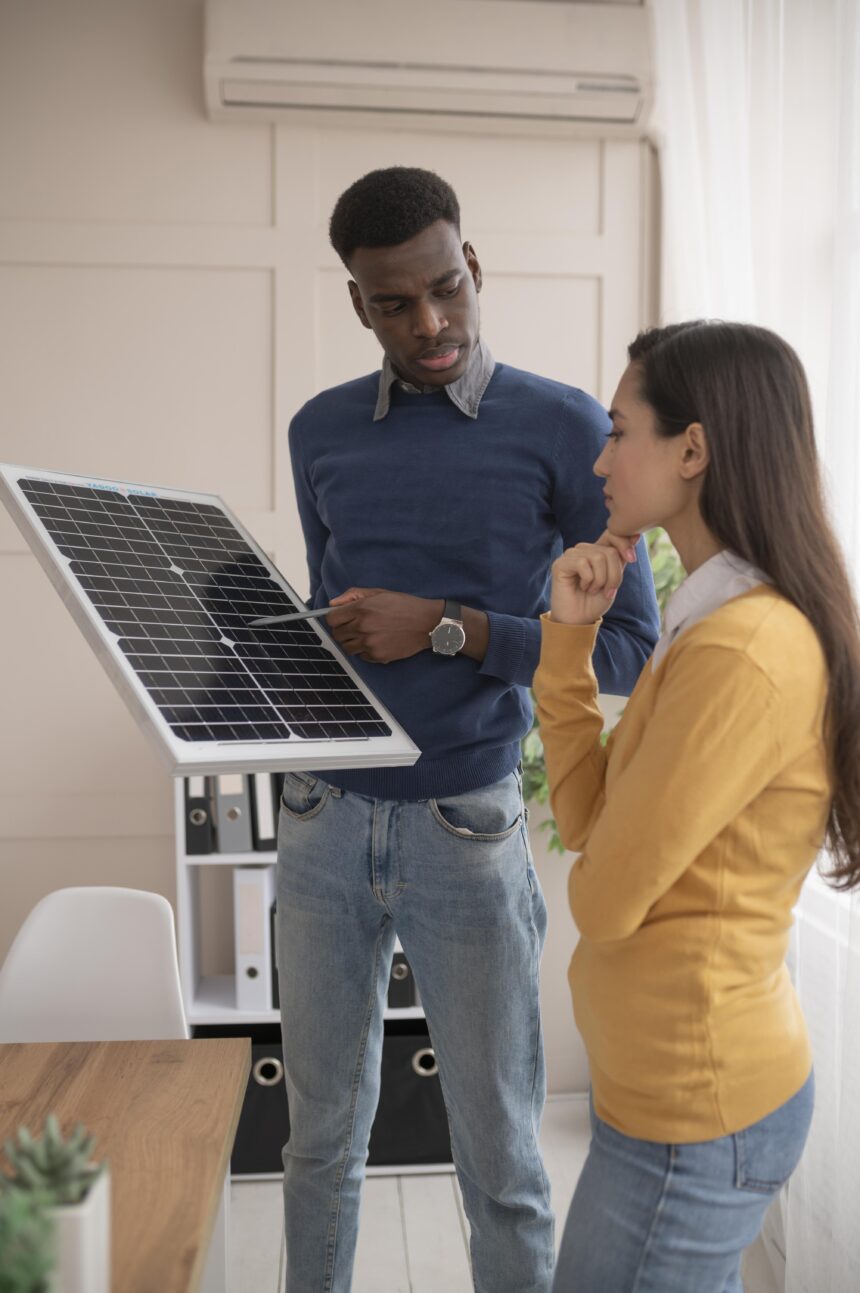As the demand for renewable energy sources continues to rise, many homeowners are installing solar panels and other renewable energy systems on their properties. While these systems offer numerous benefits, it is essential to understand how they impact your home insurance coverage. Properly insuring your solar panels and renewable energy systems is crucial to protect your investment and ensure adequate coverage. In this article, we will explore the key considerations for understanding home insurance for solar panels and renewable energy systems.
- Review Your Existing Home Insurance Policy: Start by reviewing your existing home insurance policy to determine if it provides coverage for solar panels and renewable energy systems. Standard homeowner’s insurance policies may not automatically cover these additions, as they are considered separate structures or improvements. Check the policy’s terms, conditions, and exclusions to understand the extent of coverage provided, if any.
- Notify Your Insurance Provider: Once you have installed solar panels or renewable energy systems on your property, notify your insurance provider. Inform them about the installation and provide any necessary documentation, such as invoices, specifications, or permits. Notifying your insurer ensures that they are aware of the changes to your property and can guide you on any adjustments or additional coverage that may be required.
- Coverage Options: Depending on your insurance provider and policy, you may have several options for insuring your solar panels and renewable energy systems:a. Equipment Coverage: Some policies offer specific coverage for the solar panels or renewable energy equipment itself. This coverage typically protects against damage or loss caused by covered perils such as fire, theft, vandalism, or severe weather events.b. Property Extension: In certain cases, your existing home insurance policy may allow for an extension of coverage to include solar panels and renewable energy systems as part of your dwelling or other structures coverage. This extension ensures that your solar panels are protected in the same way as other parts of your property.c. Additional Coverage: If your existing policy does not provide sufficient coverage for solar panels, you may need to add a separate endorsement or rider to your policy. This additional coverage specifically addresses the unique risks associated with solar panels and renewable energy systems, such as damage from power surges, system malfunctions, or business interruption.
- Determine Replacement Cost: When insuring your solar panels and renewable energy systems, it is important to determine the appropriate replacement cost. The replacement cost should reflect the current market value of the equipment, including the cost of installation. Work with your insurance provider to assess the value of the systems accurately to ensure you have adequate coverage in the event of damage or loss.
- Understand Deductibles: Be aware of any specific deductibles that apply to solar panels and renewable energy systems. Deductibles are the amount you are responsible for paying out of pocket before insurance coverage kicks in. Some policies may have separate deductibles for solar panels or renewable energy systems, which could be different from the standard deductible for the rest of your property. Understand these deductibles and how they may impact potential claims.
- Liability Coverage: In addition to property coverage, liability coverage is crucial when you have solar panels or renewable energy systems. These systems introduce potential risks, such as electrocution, fire, or damage to neighboring properties. Ensure that your home insurance policy includes liability coverage that protects you in case of accidents or damages caused by your renewable energy systems.
- Maintain Proper Maintenance and Safety Measures: To mitigate risks and ensure coverage for your solar panels and renewable energy systems, follow recommended maintenance and safety guidelines. Regularly inspect and maintain your systems, adhere to installation and maintenance standards, and promptly address any issues or repairs. Maintaining proper safety measures demonstrates your commitment to risk prevention and can positively impact your insurance coverage and premiums.
Conclusion: Understanding home insurance for solar panels and renewable energy systems is vital for homeowners who have embraced sustainable energy solutions. Review your existing policy, notify your insurance provider, explore coverage options, determine replacement cost, consider liability coverage, and follow maintenance and safety measures. By taking these steps, you can ensure that your solar panels and renewable energy systems are adequately protected and that you have the necessary coverage to safeguard your investment and mitigate potential risks.










